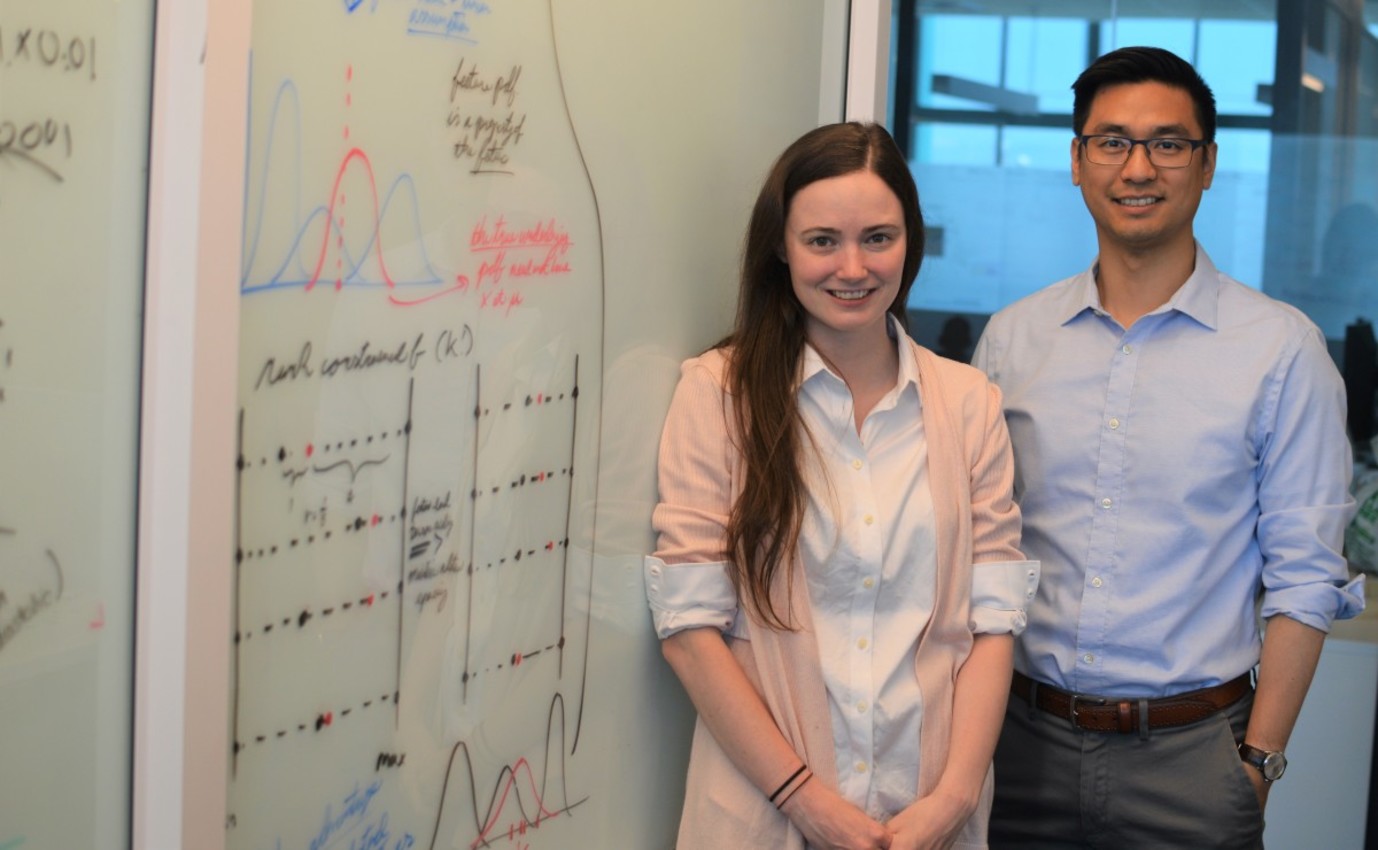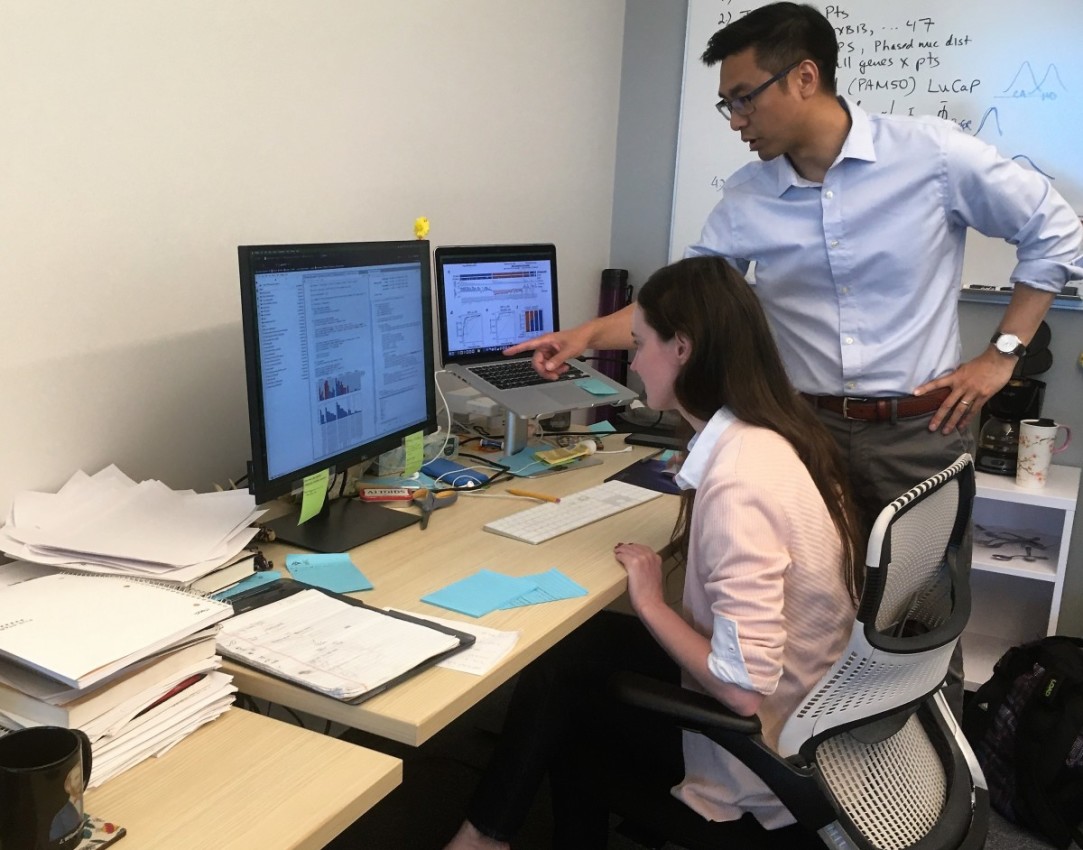
What are three characteristics necessary to identify subtypes of cancer from cell-free DNA? The ability to solve difficult genetic computational problems, a high level of enthusiasm for translational cancer research, and a passion for improving the outcomes for cancer patients.
University of Washington M.D-Ph.D. candidate Anna-Lisa Doebley has all three. And more.
Doebley, 29, grew up in Wisconsin and has been fascinated with puzzles for most of her life. That fascination, along with a love for math, provide a solid foundation for a career in scientific research and clinical practice.
“An M.D.-Ph.D. gives you both the clinical perspective and the research training necessary to make a difference in patients’ lives,” she said. “The medical training helps you understand the gaps in current clinical practice, while the Ph.D. is essential for designing research to fill those gaps. It is also valuable for making connections and working collaboratively with other researchers. The Brotman Baty Institute offers three fantastic research programs – UW Medicine, the Fred Hutchinson Cancer Center, and Seattle Children’s Research Institute.”
Doebley is well on her way connecting and collaborating with professors and researchers at two of those organizations. After completing a Bachelor of Science degree in Genetics at the University of Wisconsin – Madison, she arrived in Seattle in the summer of 2015. The following year, she did a research rotation in the lab of Dr. Evan Eichler, a principal investigator and professor in the UW Department of Genome Sciences.
It was there that she learned computer program coding with R and Python, the former focused on statistical computing and graphics, and the latter a more general programming language for data analysis and scientific computing.
“The Eichler lab was really the starting point for my interest in computational genomics,” she said. “Without the training I received in the Eichler lab, and the close guidance from postdoc Dr. Tychele Turner, I would not have learned to code, nor gained the skills that got me where I am today.”
Since 2019, Doebley has worked in the lab of Dr. Gavin Ha, an assistant professor in the Herbold Computational Biology Program at the Fred Hutch, as well as in the Hutch’s Human Biology Division. His lab studies the role of genomic alterations in cancer and explores potential clinical applications. Its goals, Ha said, are to uncover ways genetic mechanisms resist cancer treatments, identify genomic biomarkers, and explore how innovations advance clinical research and precision medicine.

'Anna-Lisa has a penchant for attention to detail and high-level of rigor in her research. She will not simply settle for anything that is substandard.' Dr. Gavin Ha
Working with Ha and other researchers, Doebley designed “Griffin,” a framework for clinical cancer subtyping of cell-free DNA. She served as first author on a paper describing Griffin’s application to breast cancer; the paper, while not yet peer-reviewed, is available on the pre-print server medRxiv.
Ha was the corresponding author on that paper. It is Doebley’s combination of curiosity and determination, which are essential problem-solving skills, he said, that have been impressive.
“Anna-Lisa has a penchant for attention to detail and high-level of rigor in her research,” Ha said. “She will not simply settle for anything that is substandard. That’s something I admire in her approach, and her work has helped to shape an exciting new direction and major research pillar in our lab. Her contributions have important implications in advancing cancer diagnostic applications in precision medicine using liquid biopsies.”
Another penchant to detail in Doebley’s research is communications – and not just through words. She studied art as an undergrad and received a certificate in studio art.
“Art is an essential part of science,” she said. “Good visualizations help all of us to understand science more easily.”
Like other young scientists collaborating with BBI faculty at the institute’s three organizations – Fred Hutch, UW Medicine, and Seattle Children’s – Doebley is developing the skills and acquiring the knowledge that enable the exploration of new opportunities at the interface of basic science and precision medicine.
“With the growing demand for applying data science in cancer research, Anna-Lisa will be at the forefront of a new generation of physician-scientists who will fill this major unmet need in clinical research and medicine,” Ha said.


